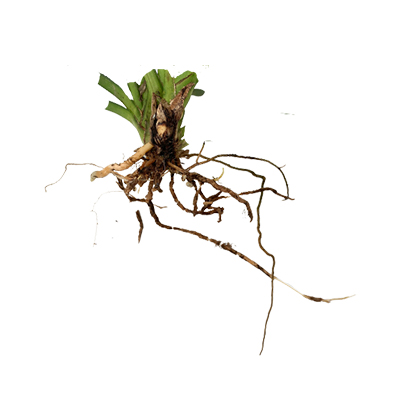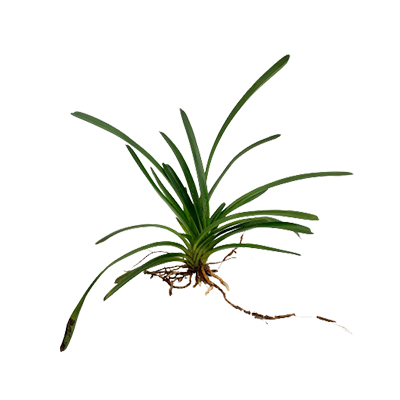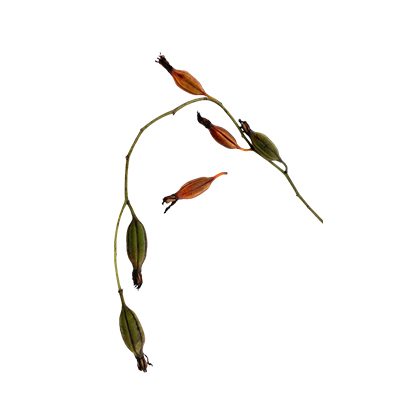Aloe leaf cymbidium
Cymbidium finlaysonianum Lindl.
Orchidaceae
Location in our garden
Green House

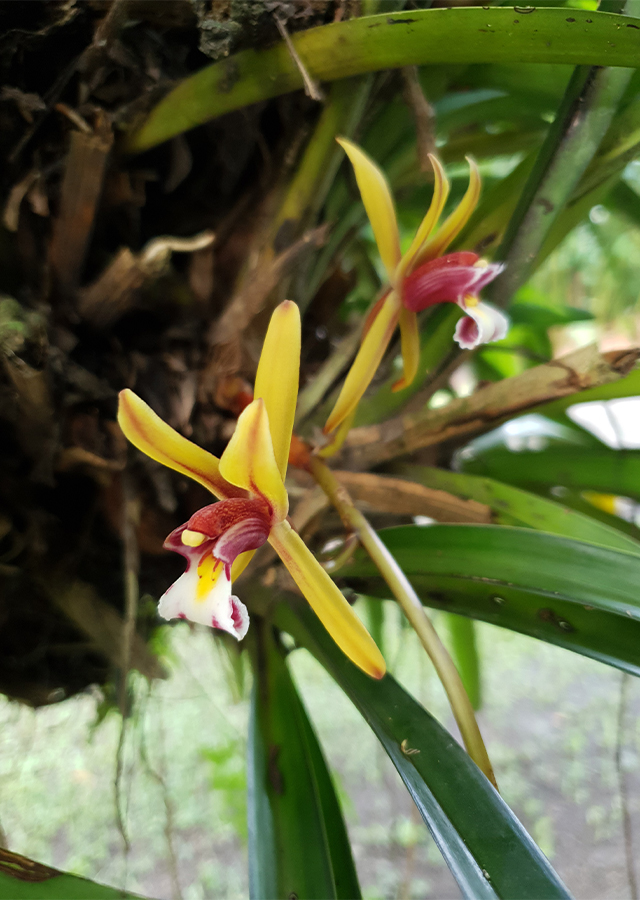
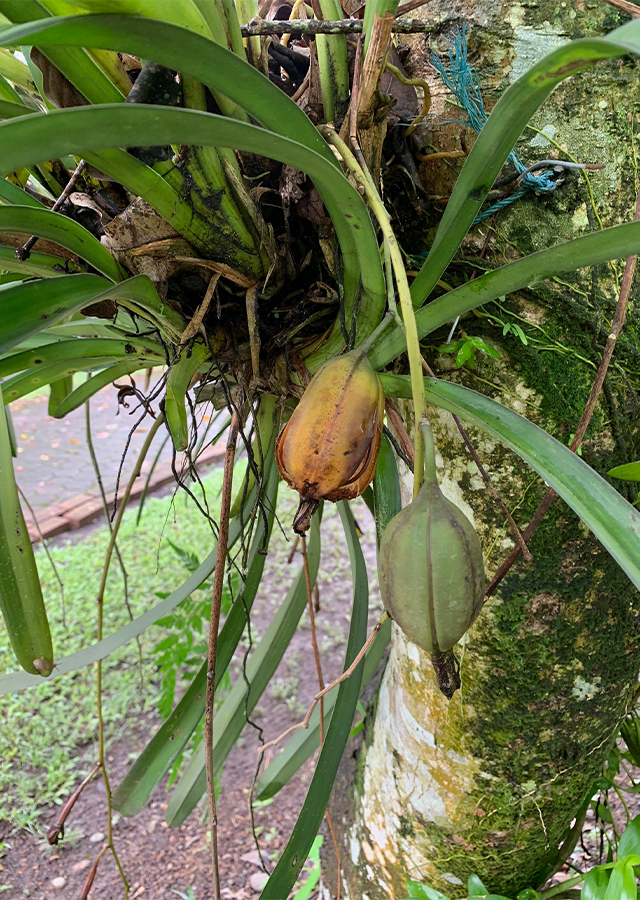
Synonym
Cymbidium tricolor Miq.
Cymbidium wallichii Lindl.
Habitus
Orchid. A robust epiphytic herbaceous orchid
Part Used
The Whole Plant
Growing Requirements
Full Sunshine
Need Shade
Habitat
Forest
Terrestrial
Overview
Aloe leaf cymbidium is an orchid growing on trees or rocks. It has very thick, rigid leaves, which remind one of Aloe. Commonly found in Nepal, India, Sri Lanka, Burma (Myanmar), the Andaman Islands, Indo-China, Southern China, Taiwan, Thailand, Peninsular Malaysia, Sumatra, Java, Borneo and the Philippines. It is a potent medicinal epiphytic orchid plant in the Indian systems of medicine. The diversity of phytochemicals detected in different parts of the plant and antibacterial properties of capsule cover suggests this plant as a source of useful drug.
Vernacular Names
Kare karon (Thai), Lan lô hội (Vietnamese).
Agroecology
This plant occurs in mixed forest and teak forest, in evergreen and in semi-deciduous and deciduous dry lowland forests and savannah-like woodlands at elevations of sea level to 1,100 m as a large sized, hot to warm growing epiphyte or lithophyte on open mossy rocks.
Morphology
- Roots - numerous, densely covering the base.
- Leaves - oblong, 30-35 x 1.5 x 2 cm, obtuse at apex.
- Flowers - in 30-40 cm long, pendulous, lax slender racemes; sepals similar, 25 x 5 mm, linear-lanceolate, acute, 7-veined, petals 20 x 6 mm, oblong-lanceolate, acute, 5-veined, lip 17 x 10 mm, trilobed, lateral lobes obliquely oblong, obtuse, less than column, midlobe ovate, acute, disc with 2 fleshy calli at the mouth of the small saccate base.
- Fruits - a big capsule, green, persistent throughout the year.
- Seeds - many and minute.
Cultivation
Propagated by seeds and pseudobulb division.
Chemical Constituents
1-(4-Hydroxybenzyl)-4,6-dimethoxy-9,10-dihydrophenanthrene-2,7-diol, cymbinodin-A dihydrophenanthrene, vitexin, and isovitexin.
Traditional Medicinal Uses
- In Thailand, juice expressed from heated leaves is dropped into the ear to treat otitis media.
- In Vietnam, the plant is used to treat colds and irregular menses, and as a tonic, whereas crushed leaves are applied externally to treat arthritis, sores and burns.
- In Nepal, the paste is used for bone fracture and dislocated bones, powder is used as a tonic and bulbs is used as demulcent agent.
Part Used
Reference Sources
- Anekaplantasia. plants clipping informations from all over media in Indonesia. Cymbidium finlaysonianum. https://anekaplanta.wordpress.com/2010/01/19/cymbidium-finlaysonianum/ 03-02-2021
- MOECAF. 2015. Study on Distribution and Medicinal Values of Wild Orchids in Matu Pe Township, Southern Chin State https://www.forestdepartment.gov.mm/sites/default/files/Research%20Books%20file/Leaflet%20No.30.%20Myint%20Myint%20San.pdf 03-02-2021
- Susiani, Asnawati, Listiawati Agustina. PERTUMBUHAN BIBIT ANGGREK Cymbidium finlaysonianum Lind. PADA BERBAGAI KONSENTRASI PUPUK DAUN. http://webcache.googleusercontent.com/search?q=cache:XOze2AM7KroJ:jurnal.untan.ac.id/index.php/jspp/article/downloadSuppFile/28672/2433+&cd=1&hl=id&ct=clnk&gl=id 03-02-2021
- Tandfonline. A new dihydrophenanthrene from Cymbidium finlaysonianum and structure revision of cymbinodin-A. https://www.tandfonline.com/doi/abs/10.1080/10286020.2018.1540605?scroll=top&needAccess=true&journalCode=ganp20https://www.tandfonline.com/doi/abs/10.1080/10286020.2018.1540605?scroll=top&needAccess=true&journalCode=ganp20 03-02-2021
- Perfumeworkshop. Historical Perspective on Medicinal Orchids of Asia with special focus on Singaporean Native Orchids. https://www.perfumeworkshop.com/therapeuticorchids1.html. 03-02-2021
- Orchidspecies.com. Cymbidium finlaysonianum Wall. ex Lindl. http://www.orchidspecies.com/cymfinlatsoniana.htm 03-02-2021
